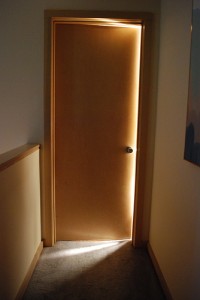 You may have noticed that I have a fondness for language – for its depth and richness and for the infinite variety of its textures and meanings. I love how flexible and elastic it can be and the endless tapestries that can be woven from it. I have no issue with language evolving to meet the demands of new ages, but I do despair if it becomes impoverished by reduction – particularly if such occurs simply through laziness or some form of inverse snobbery.
You may have noticed that I have a fondness for language – for its depth and richness and for the infinite variety of its textures and meanings. I love how flexible and elastic it can be and the endless tapestries that can be woven from it. I have no issue with language evolving to meet the demands of new ages, but I do despair if it becomes impoverished by reduction – particularly if such occurs simply through laziness or some form of inverse snobbery.
Clearly ‘imperceptible’ is amongst my favourite words and always makes me think of that great – if apocryphal – theatrical anecdote concerning Samuel Beckett. To cover the somewhat unlikely eventuality that there are those who have not yet heard this story I thought I would include it herein.
Beckett was famously exacting when it came to productions of his work, demanding not only that the text be delivered unadulterated but also that stage directions be followed to the letter.
In 1975 Beckett’s TV play – ‘Ghost Trio’ – was filmed for BBC television. According to the anecdote Beckett himself sat in on the filming, sitting unobtrusively in the shadows at the back of the studio.
One of the early shots in the play includes this stage direction:
‘Cut to close-up of whole door. Smooth grey rectangle 0.1 x 2 m. Imperceptibly ajar.’
When it came to shooting this scene the director and set designer spent some time on set, nervously discussing the exact positioning of the door and experimenting with various degrees of ‘openness’ – all the while casting anxious glances towards the back of the studio trying to guage Beckett’s reaction. Receiving no guidance from that direction they tried ever finer degrees until finally – unable to stand it any longer – the great man leapt from his seat, stormed onto the set and slammed the door shut.
The director gasped. “But it says ‘ajar’…”, he protested.
“It also”, snapped Beckett, “says ‘imperceptibly’!”.



Recent Comments